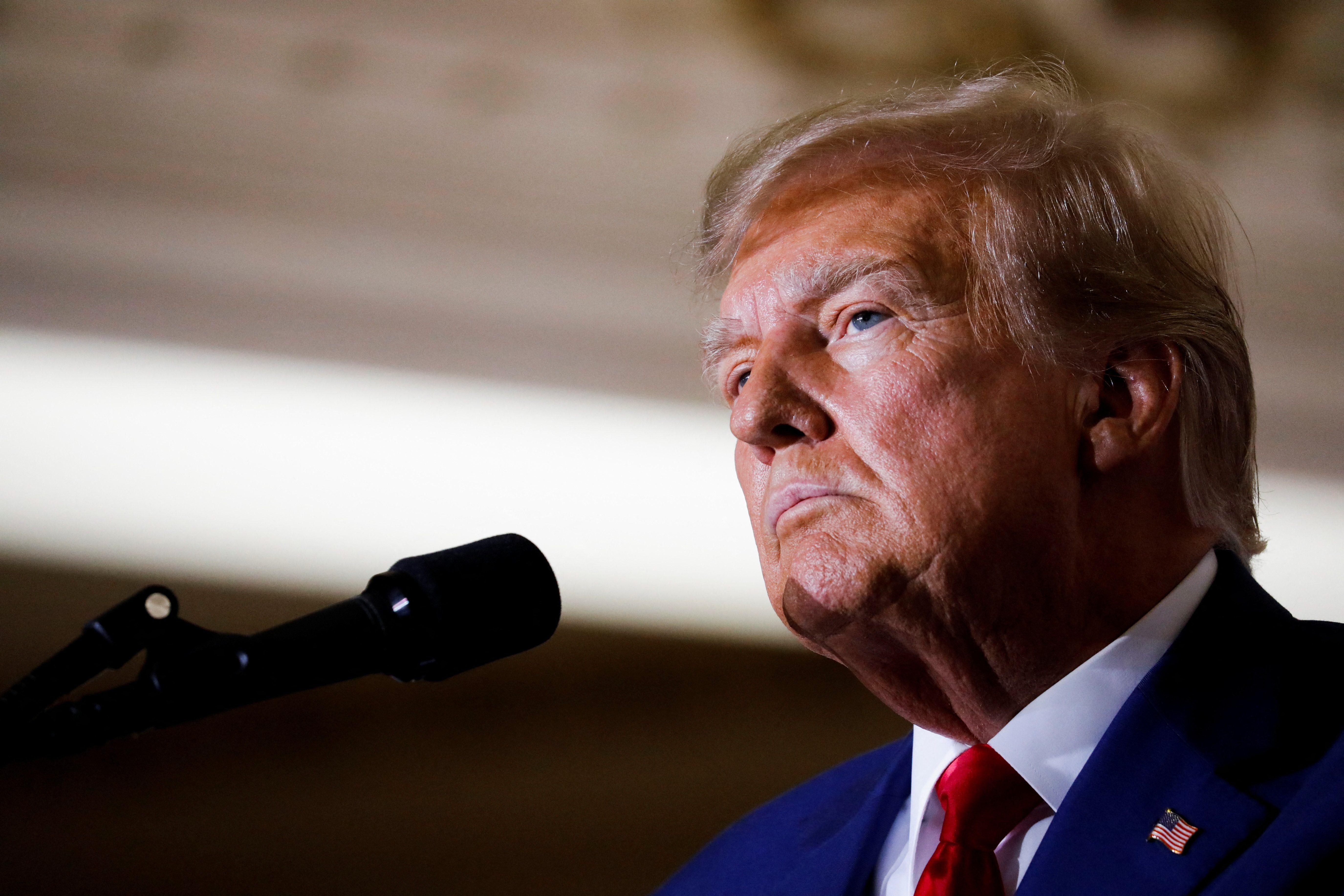Former U.S. President Donald Trump delivers remarks on the day of his court appearance in New York after being indicted by a Manhattan grand jury following a probe into hush money paid to porn star Stormy Daniels, in Palm Beach, Florida, U.S., April 4, 2023.
REUTERS/Marco Bello
The highest court in the United States announced on Thursday that it will hear a case charging those who allegedly stormed the Capitol on Jan. 6, 2021, with obstructing an official proceeding. The case will be decided by June and could have massive implications for the indictments against former President Donald Trump.
The announcement comes on the heels of Trump’s legal team filing an appeal delaying the DC court trial over charges that he plotted to overturn the election. The trial's fast-tracked timeline sought to reach a ruling before the first Republican primary on Jan. 15, 2024. Rather than being heard on Jan. 2, the case is now set for March 4, the day before Super Tuesday, the largest voting day of the primary season.
The appeal argues that Trump is immune from any Jan. 6-related charges because he was president at the time. In reality, this is an extension of Trump’s legal strategy: Delay the trials against him for as long as possible so they don’t stop him from becoming the GOP nominee.
The upshot: The Supreme Court’s decision on obstruction and immunity could radically alter the shape, scope, and timing of the DC case, which seemed like it would be the first of the four Trump indictments to be decided. It could even invalidate the outcome of the lower court’s case. With the primary season kicking off and Trump leading in the polls, any delay or deterrence to the trials increases the likelihood Trump could face court judgments after becoming the GOP nominee.